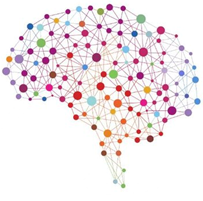Talk title: Exploring an alternative phenomenological representation: the challenge of thematising idiographic data.
Abstract
My PhD research focused on the lived experience of families of developmentally disabled young adults. First, I spoke to five mothers, then five fathers and finally five siblings; all were sisters.
As part of Jonathan Smith’s IPA Research Group, I analysed data from the first two studies using IPA in the way advocated by Smith and colleagues (2022). However, having completed IPA analyses of individual sibling transcripts, I was struck by the important and formative contribution of family context. In narrating their stories each participant conveyed the complex interplay of their sibling’s disability, individual disposition and their families’ approach to the situation. Together these factors led to differential lived experiences and outcomes.
It was evident that previous experience had shaped and given meaning to participant’s lives, their current situation and how they anticipated the future. Anxious to retain this rich idiographic detail which said something important about the sibling experience across the life course, I began to explore alternative ways of representing the findings. In addressing this challenge, I drew ideas and inspiration from the work of two phenomenologists, Gilbert Garza (2011) and Carla Willig (2014).
In today’s seminar I will describe this process of methodological reflection and share the resultant findings.


Leave a Reply